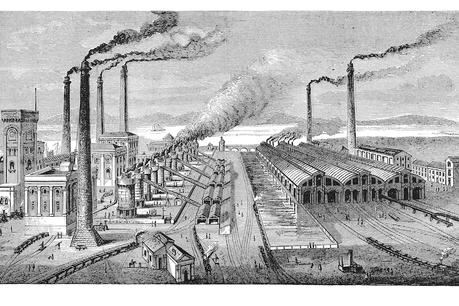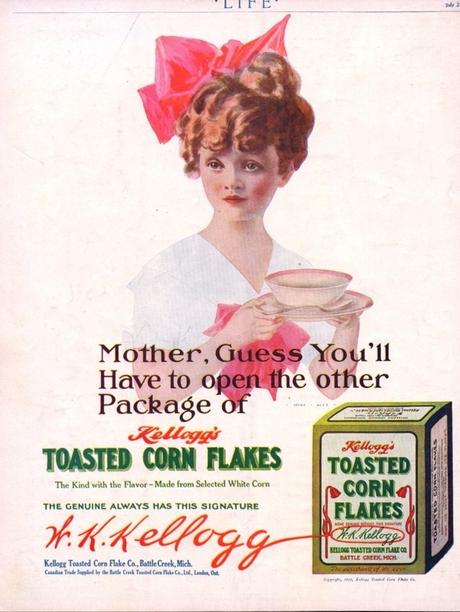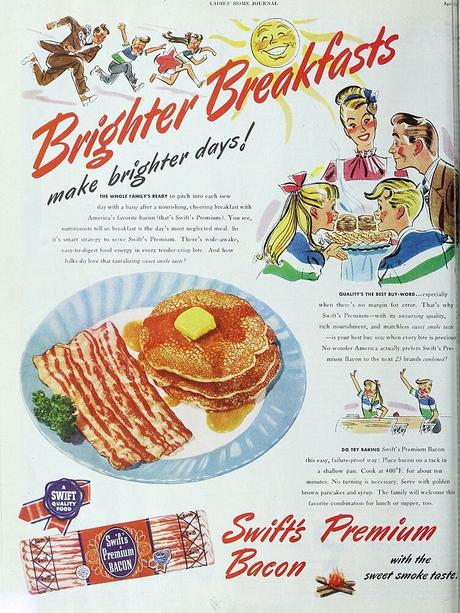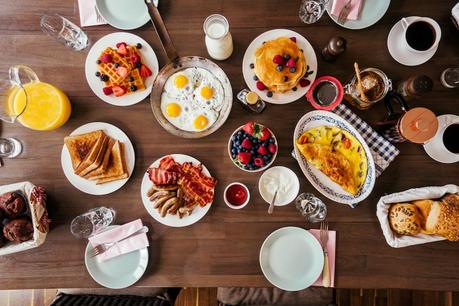If you're reading this over breakfast, take a moment to think about your choice.
Do you eat what the Western world considers a 'typical' morning meal?
Bacon and eggs. Grain. Dad. Pancakes. These dishes are often considered suitable in the morning, but unusual at any other time.
So how did this happen? Do "breakfast foods" serve a unique purpose, or is the distinction arbitrary?
While people have been breaking their fast for as long as there have been humans, the timing of that first meal has varied throughout history.
The ancient Romans were big proponents of breakfast, enjoying bread, cheese and some watered down wine at the crack of dawn.
This also applied to the ancient Egyptians, who usually ate only breakfast and dinner. It was also common for workers to start their day with beer.
But in the Middle Ages of Europe, the first meal often did not take place until mid-morning. The Catholic Church - namely theologian Thomas Aquinas - considered eating too early to be a form of gluttony.
It was capitalism that brought consistency.

The Industrial Revolution, from 1750 to 1860, brought more people into offices and factories.
Since they had fewer opportunities to eat during the workday, a morning meal was essential.
Many who sat most of the day also opted for a lighter breakfast to avoid indigestion.
Yet the type of food people ate was determined by convenience: what was easiest, cheapest, and available.
How cereal became a breakfast staple
While the Industrial Revolution raged on in Britain, another revolution was underway in the US.
A doctor, John Harvey Kellogg, was looking for a pre-prepared, nutritious meal for patients at the sanitarium he ran in Battle Creek, Michigan.
Dr. Kellogg created the now famous Corn Flakes, with the intention that the mild food would ease digestion... and prevent masturbation.
He believed that masturbation led to a number of health problems, including memory loss, impaired vision, heart disease, epilepsy and insanity.

It was his brother, WK Kellogg, who went on to produce and market cereal on a large scale, without any mention of his sibling's anti-masturbation beliefs.campaign. He also added sugar.
Thanks to its prepackaged convenience, breakfast cereal has quickly risen in the US, going from a digestive aid to a morning staple.
The rising popularity of grains in the first half of the 20th century helped establish the idea that "breakfast is the most important meal of the day."
But the slogan, believed to have emerged from a 1940s grain campaign, had already appeared in print decades earlier, including in an 1880 book by Good Housekeeping.
This also applies to breakfast Real themost important meal of the day?
Research tells a different story.
Do you have a health question for What's That Rash? Message us @ABCHealth on Instagram, or email us a voice memo. We would love to hear from you.
A 2016 study led by the Bath Breakfast Project examined what we call 'breakfast' and what we define as 'important'.
The authors say breakfast is "undoubtedly" important if you wake up hungry, but it's impossible to pin down long-term health outcomes on a single meal.
There are still numerous studies into the effects of breakfast on our health. Some suggest that skipping the morning meal can lead to weight gain. Others fail to find a connection.
Some research suggests that breakfast contributes to better cardiometabolic health. Others argue for more and better research.
The conclusion from the Bath Breakfast Project?
"Breakfast may not be the most important meal of the day, but it is certainly an important meal to explore further."
Bacon, eggs and a side of PR
The cereal campaign is just one side of the marketing blitz behind the Western world's breakfast beliefs.
One of the most successful PR campaigns in modern history came from the mind of one man: Edward Bernays.
In the 1920s, as more and more people opted for a lighter, more easily digested breakfast (perhaps a bowl of cereal),Bacon sales fell.

Bernays, also known as the father of PR, was called in to turn things around.
In his book, Bernays wrote that bacon sales fell "because people had downsized their breakfast to a piece of toast, orange juice and a cup of coffee."
So, he asked, can a heartier breakfast be healthier?
Bernays sent the question to 5,000 doctors and 4,500 responded affirmatively: Americans should eat a protein-rich breakfast with bacon and eggs.
He shared the results with newspapers and magazines, and bacon sales went up.
In reality, the World Health Organization believes there is enough evidence to say that processed meat is carcinogenic to humans, just like smoking, which Bernays also advocated.
The Cancer Council recommends eliminating processed meat from your diet altogether, or keeping it to a minimum.
What should we eat for breakfast?
It's no secret that what we eat is shapedthrough marketing. Although that influence already began in print, recent studies focus on itabout the influence of social mediaour food choices.
But beyond marketing, what next? should do we have for breakfast?

According to dietician Jemma O'Hanlon, the answer is simple: a balance between complex carbohydrates, proteins and unsaturated fats.
"An example is some natural granola with some Greek yogurt, some fresh berries and some roasted nuts," she says.
"You have whole grains from your granola, you have protein from your yogurt, you have healthy fats from your roasted nuts and you have fresh berries, a source of fruit."
But there are plenty of variations on a healthy breakfast, especially if you move away from the Westernized morning meal.
In Japan it is common to have a combination of rice, eggs and vegetables.
In North Africa and the Middle East, shakshuka - a dish of poached eggs in a tomato mixture, often with bread - is popular
And those meals, while some may not consider them "breakfast food," all tick the right boxes. They contain complex carbohydrates, proteins and unsaturated fats.
"I think it's helpful to have that as a basis to guide us," Ms. O'Hanlon says.
"But we don't have to get those macronutrients absolutely right every day... It's about finding what works for you."
As for the debate over whether to skip your morning meal, Ms. O'Hanlon says you should eat when you're hungry.
"Our brains are very smart," she says.
"We know how many calories we are consuming. We know if we are getting the right nutrients to fill us up and give our bodies what we need.
"If we don't get those foods, we'll crave them later in the day. So a healthy breakfast sets us up for success."
Listen to Dr. Norman Swan and Tegan Taylor discussing breakfast foods on RN's What's That Rash? And subscribe to the podcast for more.Get the latest health news and information from across the ABC.
